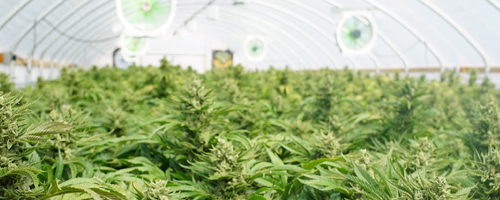West at a Glance - Fall 2018 - Inclusiveness
ISSN: 2561-3863
News and Analysis | Success Stories | Upcoming Events| Look Ahead
Key Economic Indicators | View the print-friendly version: PDF
News and Analysis

Western canada
Towards a Western Canada Growth Strategy

The world is changing. In an era of intense global competition, Canadians must build on achievements, address challenges head on, and seize new economic opportunities that position us for the future.
The federal government is working with business, industry, academia, Indigenous communities and organizations, and different levels of government, to help develop a truly "Made-in-Western-Canada" growth strategy. This strategy not only reflects the unique regional advantages of each province, but also helps to stimulate economic growth.
Whether you live in rural or urban areas, you are a part of a small startup, or you are a community leader, you have ideas about what is needed to build a strong economy. We need you to tell us what matters most to you about growing the economy, and how we can better work together to build on our existing regional strengths.
Public engagement will be open until November 16, 2018. Visit the Western Economic Diversification Canada (int)website for information and details on how to participate.
British Columbia
British Columbia's Women's Enterprise Centre promotes female entrepreneurship

Earlier this year, Women's Enterprise Organizations of Canada (WEOC) and the Business Development Bank of Canada (BDC) collaborated to boost support for women entrepreneurs.
The partnership includes British Columbia's Women's Enterprise Centre (WEC) and WEOC member organizations in Alberta, Saskatchewan, Manitoba, and Newfoundland and Labrador:
The goal of the partnership is to make it easier for women to start their own businesses and keep them growing. It improves access to capital and provides advice, mentoring, and networking opportunities. It also creates less stringent lending requirements. The initiative builds on Budget 2018's Women Entrepreneurship Strategy, including:
- $1.4 billion in lending by BDC to women-led businesses by 2021.
- $200 million to invest in women-led technology firms over the next 5 years.
- $105 million over 5 years to women-led businesses, delivered by regional development agencies like Western Economic Diversification Canada (WD).
Supported by funding from WD, WEC provides business loans, advice, and training to women who are starting or scaling up their own ventures.
In response to Vancouver's growth as a technology hub, WEC now has an Entrepreneur-in-Residence with a strong technology background. The goal is to meet the needs of women pursuing tech and innovation-based "non-traditional" ventures.
Last year, WEC created, maintained, and expanded 105 businesses and offered business advisory services to over 2,400 other female-led enterprises.
A successful example is the Red Dog Deli Raw Food Company, which WEC supported through its loan program. Red Dog Deli is recognized as a leader in the raw pet food industry in BC. Its products are sold by retailers across Canada and exported to the United States.
WEC also provided loans to Green Moustache Juice to help it expand organic plant-based restaurants throughout British Columbia and Alberta. WEC's support was key to helping Green Moustache set up a franchise system.
In British Columbia, women own 38% of businesses, the highest rate in western Canada. Women make up 47% of the BC workforce, but few are in:
- tech (15 to 20%)
- skilled trades (4%)
- leadership positions, such as CEOs (5%)
Many initiatives encourage entrepreneurship and help women enter non-traditional sectors, but low female representation and pay inequity persist. Improving female participation rates would reduce labour shortages, bolster Canada's innovation strategy, and improve economic outcomes overall.
Data suggests many female science, technology, engineering, and mathematics (STEM) graduates don't choose careers in the tech sector. Others can't find a job in their field, and many leave for other industries.
Similar challenges persist in trades. Women are less likely to enroll in apprenticeships and often don't complete them. Retention rates are lower for women than for men. A lack of role models, networks, and mentors are consistently reported barriers.
Access to resources and finances is by far the greatest challenge women face starting ventures when compared to their male counterparts. Survey data suggests that 57% women entrepreneurs are asked for their personal financial statements to access capital, versus 31% of men.
Alberta
Fostering the economic advancement of women in Alberta
 Women face greater barriers than men in the pursuit of economic security. In 2017, women in Alberta had the highest labour force participation rate (66%) of any province. Compared to men, however, the participation rate of Alberta women was 12 percentage points lower.
Women face greater barriers than men in the pursuit of economic security. In 2017, women in Alberta had the highest labour force participation rate (66%) of any province. Compared to men, however, the participation rate of Alberta women was 12 percentage points lower.
Women in Alberta also had the highest employment rate of any province, at 61%. Compared to men in Alberta, though, women had a lower employment rate across all age groups. The largest gap was in the 25 to 44 age group, which had a 13% disparity.
Women are also more likely to work part-time than men. They held 69% of part-time jobs and just 40% of full-time jobs in Alberta in 2017.
In 2016, 33% of Alberta women said that affordable child care was the main reason for choosing a part-time job or no job at all instead of full-time work. It is noteworthy that lone-parent households are most often led by women.
To increase female participation in the labor force, the federal government signed an agreement in 2017 with the Government of Alberta and other provincial and territorial partners to support affordable child care across Canada. The Early Learning and Child Care (ELCC) pilot program began with 22 centres in Alberta. By April 2018, 100 more ELCC centres were announced for a total of 122 centres across Alberta. These new centres are expected to create 6,000 affordable child-care spaces, helping 1,400 Albertans to re-enter the workforce.
Women in Alberta also face a gender pay gap and are more likely than men to earn minimum wage. In 2017, women between the ages of 25 to 54 earned $6.25 an hour less than men, while women 55 years and older earned $7.98 an hour less than men. In September 2016, the Government of Alberta passed legislation to increase the minimum wage to $15 an hour by October 2018. As 60% (62,900) of minimum wage earners in Alberta are women this change will bring relief to lower-income women and narrow the wage gap.
In 2017, women in Alberta dominated jobs in:
- health care (81% women)
- business, finance, and administration (70%)
- education, law, and social community and government services (67%)
Only 7% of people working in trades and transport, or as equipment operators, were women. In addition, just 14% of those in natural resources, agriculture, and related sectors were women. To reduce this difference, Alberta-based Women Building Futures (WBF) helps women prepare for traditionally male jobs. WBF receives funding support from:
- the Government of Alberta
- the Government of Canada
- the Native Women's Association of Canada
With their support, WBF offers 9 programs in Edmonton and Fort McMurray that train women who want a career in trades.
To support women entrepreneurs in Alberta, both the federal and provincial governments have funded Alberta Women Entrepreneurs (AWE). This not-for-profit organization is dedicated to enabling women to build successful businesses. AWE offers:
- mentoring
- financial support
- networking events
- start-up workshops
- a peer-supported accelerator program
WD provides $975,000/year for core funding to AWE through the Women's Enterprise Initiative (WEI). From 2007 to 2012, WEI-assisted firms in Western Canada created jobs at a rate of 5.6%, compared to -0.2% for non-assisted firms. WEI-assisted firms also lasted 15% longer than non-assisted firms.
In March 2017, the Government of Alberta committed $101,863 through the Community and Regional Economic Support Program to help women-led businesses expand through AWE's PeerSpark program. PeerSpark brings together like-minded women entrepreneurs to explore ways to grow their businesses faster. At the same time, it introduces them to key resources, networks, grant programs, and trade experts.
Alberta's Ministry of Status of Women promotes gender equality in Alberta in 3 areas:
- women's economic security
- preventing and addressing gender-based violence
- increasing women's leadership and democratic participation
The department has led or supported many programs and policies that advance gender equality. One of those is the Fair and Family Friendly Workplaces Act, which the Alberta legislature passed in June 2017. The act increases parental and compassionate care leave and leave for situations where there is family violence.
Alberta Status of Women also created the Status of Women Community Grant Program. In the 2017-18 fiscal year, it allocated $850,000 to 32 non-profit organizations to start or expand projects that:
- empower women in leadership roles
- help them provide economic security to their families
- prevent gender-based violence
One non-profit that was funded is Multicultural Health Brokers Cooperative, which helps immigrant and refugee women run micro-enterprises in their communities.
Saskatchewan
Thunderchild First Nation invests in Calgary cannabis company
Thunderchild First Nation has invested $8 million in Calgary-based Westleaf Cannabis, making the Saskatchewan First Nation its largest shareholder. Westleaf plans to grow and sell cannabis online and through a chain of stores in Western Canada, including one in Warman, Saskatchewan.
On July 23, the company broke ground on a 115,000 square foot factory in Battleford, Sask. on land owned by Thunderchild First Nation. They expect the facility to bring 150 jobs when it opens in the next 10 to 12 months. Employees will go through extensive training. They will work with a team of experts from Westleaf who specialize in building and operating facilities that grow and process cannabis.
Westleaf plans to open a second, smaller facility of around 60,000 square feet in Calgary's southeast industrial area. They plan to hire 80 full-time employees. Westleaf also plans to open 3 to 6 retail outlets in BC.
In 2017, the Johnson Shoyama Graduate School of Public Policy in Saskatchewan released its report Legalizing & Regulating Cannabis in Saskatchewan. It estimated the direct economic benefit of legalization to the province at around $250 million per year. These benefits from retailing and distribution include:
- developing equipment and technology to grow cannabis
- creating new strains of cannabis
- processing and packaging fresh and dried cannabis, cannabis oil, and seeds
- producing cannabis edibles and concentrates
The Government of Saskatchewan held a lottery to assign 51 permits to sell cannabis from more that 1,500 applicants. Proposed regulations include the option for retailers to sell online. The regulations will create opportunities for retailers and help establish a competitive cannabis market in the province.
Manitoba

Building inclusiveness into Manitoba's business scene
Kapyong
In April 2018, a group of Treaty 1 First Nations reached an agreement with the Government of Canada to set up an urban reserve in Winnipeg. It will be on the site of the former Kapyong Barracks. Demolition of the existing buildings has begun. To date, 18 empty homes have been torn down. The rest will take over 2 years to remove.
When existing structures are gone, work will begin on developing 110 acres into an urban reserve. The Treaty 1 group aims to have a plan for the mixed-use residential and industrial site ready by the fall of 2018. There is no timeline yet to complete the project.
Meanwhile, Peguis First Nation is expanding its urban reserve in Winnipeg. There are already several businesses and agencies in an existing building and they recently broke ground on a $30 million office/residential/retail complex on Portage Avenue. The first phase will be a 2-storey, $6.5 million, 14,125 square foot building that will house:
- a restaurant
- a pharmacy
- a pain-management clinic
- a retail recreational cannabis outlet
Training and employment
The government of Manitoba is investing in Indigenous training and employment. On August 10, 2018, over 40 youth graduated from a unique high school internship program that encourages Indigenous students to seek jobs in health care. The program includes 55 volunteer hours job-shadowing health workers in many different roles. It also includes a paid summer job that earns the students school credits.
Many of the previous years' graduates are now in post-secondary programs for health-care careers, such as:
- bachelor of nursing
- licensed practical nurse
- health-care aide and physiotherapists
Twenty-five previous graduates from the program are working in health care.
SHEday
The Women's Enterprise Centre of Manitoba, a WD partner, hosts an annual SHEday conference. SHEday gives women in leadership roles a way to inspire and promote success for other women. At the conference, local and national speakers share their knowledge, experiences, and stories. SHEday helps women develop their leadership capacity and strength by:
- building networks
- creating dialogue
- enhancing communication
The annual conference began in 2015 and has grown significantly since. There were over 1,300 people in attendance at SHEday 2018 this past January.
Success Stories
British Columbia

Photo Credit: Songhees Innovation Centre
Indigenous innovators collaborate at new Songhees Innovation Centre
The Songhees Innovation Centre (SIC) received $93,410 through Western Economic Diversification Canada (WD) in 2017. This funding helped launch an innovative space in the Songhees Wellness Center, near downtown Victoria, BC. The aim was to attract Indigenous entrepreneurs from any First Nation. The Honourable Minister Navdeep Bains, Minister of Innovation, Science and Economic Development and Minister responsible for Western Economic Diversification Canada announced funding for the project in March 2018.
The Songhees Innovation Centre is an open-concept space designed as a communal, co-working environment. Its goal is to foster collaboration and rich idea exchanges among Indigenous innovators. The broader goal is to become a model for entrepreneur-driven economic development in First Nations communities, particularly in urban reserves.
The SIC is on traditional territory of the Lekwungen (Songhees) People of the Coast Salish Nation. It is a joint effort of:
- the Songhees Nation
- South Island Prosperity Project
- Animikii Indigenous Technology
Jeff Ward, founder of Animikii Indigenous Technology, is an anchor tenant at SIC. Jeff was key to realizing SIC's potential. He recognized the growing need for spaces in the market that bring together all the resources Indigenous entrepreneurs and organizations need to grow their operations. This was great news for one of the largest sectors in Greater Victoria – technology.
Today, the SIC is a proud example of successful collaboration across sectors. It serves as a model of excellence for Indigenous people, created by Indigenous people. It shows how they can innovate, develop, and implement tech-based solutions to issues affecting local businesses and communities.Alberta

Photo Credit: Women Building Futures
Women Building Futures – You got this!
The pursuit of inclusive participation in the economy requires new perspectives and new ways of thinking. This belief prompted a small group of women to create Women Building Futures (WBF) in 1998 to help prepare women for careers in industries in which, historically, they have been under-represented.
Since 2005, WD has invested approximately $5.5 million in six WBF projects to help expand programs, develop curriculums, retrofit warehouse space for its facility, and deliver programs in new ways such as online and with virtual reality tools.
This support helps WBF give women a new path to economic freedom. Taking that path requires courage, determination, hard work, and a leap of faith. Take, for example, Cora-Lee, the voice behind WBF's award-winning "You Got This" marketing campaign, which encourages women to consider a career in the trades. She says becoming a pipefitter is a major source of pride because it means she didn't back down from challenges. Her red seal ticket gave Cora-Lee independence, a sense of self-worth, and the ability to create a bright future for herself and her two daughters.
That sense of accomplishment can be heard in many WBF stories. Helena is proud to be called tough and courageous when she tells people she is a professional Class 1 truck driver. Karlayne, a second-year apprentice millwright, can't wait to see an eager apprentice look up to her one day. Kristen, a graduate of WBF's Journeywoman Start Class, is now a first-year electrician. She loves building things and working with her hands.
WD is proud to work with WBF to supportinclusive participation in Western Canada's economy. WBF continues to place women in the workforce at a rate of 90%, which suggests it hit the nail on the head when it set out to empower women to build their futures through careers in the trades.
Saskatchewan

Photo Credit: Saskatoon Trades and Skills
Saskatoon Trades and Skills Centre – 10 years of opportunity
Established in 2007, the Saskatoon Trades and Skills Centre (STSC) equips vulnerable youth and adults with the skills they need to enter the workforce, while responding to the needs of local industry. It is an initiative of the Saskatoon Public School Division, Saskatoon Tribal Council, Government of Saskatchewan, and other partners.
WD Canada provided over $3.6 million to the STSC for the construction of its learning lab, an outbuilding, and heavy equipment.
The STSC works with local businesses to offer training in areas businesses identify as being in greatest demand. Courses aim to give learners the initial experience that can lead to an entry-level position and on to apprenticeship or other skilled trades training.
Courses provide hands-on learning in the student's chosen field, as well as any other qualifications they need to work on a job site, such as health and safety courses. After the formal courses, learners work with a local employer for hands-on training and potential employment at the end of the work term.
The STSC pays students throughout their program and work placement. Support and mentoring is provided through career coaches and elders. The STSC works with learners to help them overcome any other barriers to employment, from providing daycare to helping obtain a driver's license.
In its first decade, the STSC has served over 2,500 students with employment rates for graduates over 85%. They include a high proportion of people from backgrounds where getting into trades has been a challenge. Last year, close to half of the STSC's students identified as Indigenous, with another quarter being new Canadians.
Manitoba

Photo Credit: Manitoba Construction Sector Council (MCSC)
Investing in Indigenous youth and infrastructure
In March 2018, WD announced 45 First Nations and Indigenous businesses and programs would receive $27 million. These funds were to expand existing business activities and pursue new ones. One of the funded projects is a blast hole drilling training program run by the Manitoba Construction Sector Council (MCSC).
Blast hole drilling prepares and levels the ground for a road or utility line. Trained construction workers drill holes into the earth and put blasts in to break up the rock. It can be a dangerous job without the proper training.
MCSC will partner with construction companies and Indigenous communities to develop and deliver a certificate program in blast hole drilling. They will use:
- training videos
- in-class teaching
- game-based learning technology
- in-seat operation of drilling equipment
WD is paying to buy blast hole drilling simulators. That will give students practical experience in a safe learning environment.
This program has four stages before students train in construction:
- job readiness training (3 weeks)
- safety training (1 week)
- introduction to heavy construction (1 week)
- essential skills leadership (1 week)
The project has the support of 6 construction companies and 5 First Nation communities. It is also supported by:
- Manitoba Building Trades
- First Peoples Development
- Manitoba Heavy Construction Association
- Manitoba Institute of Trades and Technology
Carol Paul, Executive Director of the Manitoba Construction Sector Council, says they have completed the "train the trainer" program and hope to start training students this fall.
Upcoming Events
Western Canada
Western Canada Growth Strategy: Western Canada 1
November 16, 2018
Public consultation on the Western Canada Growth Strategy
British Columbia
National Aboriginal Business Opportunities Conference (NABOC): Alberta 1
Richmond, BC | October 30-November 1, 2018
NABOC attracts decision-makers from industry and Indigenous communities on the theme "reconciliation through business partnerships".
SheBiz: Alberta 2
Burnaby, BC | November 2, 2018
Connects girls in grades 9 to 11 with business and STEM leaders to expose them to career opportunities available to women in these fields.
We for She Forum: Alberta 3
Vancouver, BC | November 16, 2018
Gathering of change makers, business leaders, and young women collaborating to advance equality and Canadian economic growth through gender diversity.
BC Business Summit: Alberta 4
Vancouver, BC | November 16, 2018
Connects business, academia, First Nations, and government leaders to engage with perspectives on Canada's risk, opportunities, and business environment.
Alberta
25th Annual National Conference & AGM: Alberta 1
Edmonton, Alberta | October 22-25, 2018
Hosted by Cando, the Indigenous conference will bring together 400 economic development officers for 4 days of accredited training, workshops, keynotes, and networking.
2018 EDA Ministry Dinner: Alberta 2
Edmonton, Alberta | October 25, 2018
This event brings together Economic Developers Alberta members and key federal and provincial representatives to network, share information and explore potential partnerships.
Annual Gairdner Research Symposium Precision Health – from Data to Wellness: Alberta 3
Edmonton, Alberta | November 15-16, 2018
Hosted by the U of A, this year's event will highlight recent discoveries and developments that are transforming current treatment paradigms into a more data-centered and patient-specific approach. Learn about exciting achievements in precision diagnostics, therapeutics, public health and digital analytics.
Rainforest Alberta's Fifth Summit: Alberta 4
Calgary, Alberta | November 26, 2018
This summit helps measure the quality of the innovation ecosystem in Alberta using a Rainforest Scorecard Assessment tool.
2019 Annual AIHA Stakeholder Event: Alberta 5
Edmonton, Alberta | January 17, 2019
Hosted by AIHA. the annual stakeholder event is a full-day networking conference offering attendees an opportunity to engage with industry experts and elected officials.
Saskatchewan
International Indigenous Tourism Conference: Saskatchewan 1
Saskatoon, SK | October 30-31, 2018
Annual conference bringing together people interested and invested in creating and contributing to the Indigenous tourism industry in Canada and around the world.
1st International Conference on Generation IV and Small Reactors: Saskatchewan 2
Ottawa, ON | November 6-8, 2018
"Meeting the Challenges to Deploy Next Generation Advanced Reactors and SMRs" in fostering low-carbon energy innovation for Canada and the world.
Canadian Western Agribition: Saskatchewan 3
Regina, SK | November 19-24, 2018
Agribition is the largest livestock show in Canada with an extensive agribusiness trade show.
Manitoba
Manitoba Business Awards: Manitoba 1
Winnipeg, MB | October 26, 2018
An award ceremony presented by the Manitoba Chambers of Commerce.
Linkages in Northern Economic Development: Manitoba 2
Opaskwayak, MB | November 7-8, 2018
Members of Indigenous and non-Indigenous communities along with a variety of stakeholders will discuss how to thrive in a time of change and connecting the north to the world.
Look Ahead
- BC plans to overhaul its procurement process in 2018, following consultation with businesses and ministries. The 2018 Procurement Strategy includes measures to help small, medium, and large businesses access opportunities. There will also be engagement to develop a coordinated approach to Indigenous procurement.
- A new law to support BC's enhanced environmental assessment (EA) process is planned for late fall 2018. Public, Indigenous, and stakeholder comments from June and July 2018 will be used to draft the regulations. The new EA process will come into force in early 2019.
- Manitoba's Legislature began sitting on October 3. It will debate the Budget Implementation and Tax Statutes Amendment Act, among other topics. Also, Manitoba's progress report towards reconciliation, which was meant to be released in June, will likely be tabled in the House during this session.
Key Economic Indicators
Growth Domestic Product |
BC |
AB |
SK |
MB |
Canada |
Last Update |
|---|---|---|---|---|---|---|
| Real GDPFootnote 1 (2007 $billions, forecast) | $234 | $311 | $62 | $58 | $1,777 | 2018 |
| % ch. from year earlier | 2.4% | 2.2% | 1.5% | 1.9% | 2.1% |
Labour Market |
BC |
AB |
SK |
MB |
Canada |
Last Update |
|---|---|---|---|---|---|---|
| Employment (SA, thousands) | 2,516 | 2,338 | 571 | 648 | 18,694 | Sept-18 |
| Change from previous month | 33.3 | -2.9 | 1.8 | -1.1 | 63.3 | |
| % ch. from previous month | 1.3% | -0.1% | 0.3% | -0.2% | 0.3% | |
| % ch. from year earlier | 1.7% | 2.4% | 0.5% | 0.6% | 1.2% | |
| Unemployment Rate (SA,%) | 4.2% | 7.% | 6.4% | 5.8% | 5.9% | Sept-18 |
| percentage points from previous month | -1.1 | 0.3 | -0.3 | 0 | -0.1 | |
| percentage points from year earlier | -0.7 | -0.8 | 0.2 | 0.2 | -0.3 | |
| Regular EI beneficiaries (SA) | 42,200 | 52,300 | 16,400 | 15,680 | 464,660 | Aug-18 |
| Change from previous month | -370 | -2,020 | -100 | -360 | -7,390 | |
| % ch. from previous month | -0.9% | -3.7% | -0.6% | -2.2% | -1.6% | |
| % ch. from previous year | -16.6% | -23.0% | -11.0% | 0.4% | -11.8% | |
| Average weekly earnings | $967.00 | $1,147.65 | $1,012.85 | $937.40 | $996.66 | Jul-18 |
| Change from previous year | $29.02 | $20.12 | $11.34 | $32.05 | $29.17 |
Prices |
BC |
AB |
SK |
MB |
Canada |
Last Update |
|---|---|---|---|---|---|---|
| CPI (y/y) | 2.5% | 3.0% | 1.8% | 2.4% | 2.2% | Sept-18 |
| CPI (y/y) previous month | 2.9% | 3.1% | 2.2% | 2.9% | 2.8% | Aug-18 |
Consumers and Business |
BC |
AB |
SK |
MB |
Canada |
Last Update |
|---|---|---|---|---|---|---|
| Retail Sales (SA, $millions) | $7,130 | $6,883 | $1,620 | $1,736 | $50,758 | Aug-18 |
| % ch. from previous month | -0.1% | -0.1% | -2.7% | 0.6% | -0.1% | |
| % ch. from previous year | 1.3% | 3.2% | 0.4% | 2.1% | 3.6% | |
| Manufacturing Sales (SA, $millions) | $4,750 | $6,590 | $1,498 | $1,724 | $58,570 | Aug-18 |
| % ch. from previous month | 0.6% | -0.8% | 2.9% | 1.9% | -0.4% | |
| % ch. from previous year | 10.2% | 12.4% | 14.3% | 9.1% | 9.0% | |
| Building Permits (SA, $millions) | $1,836 | $1,073 | $129 | $285 | $8,148 | Aug-18 |
| % ch. from previous month | 31.5% | 1.9% | -11.3% | 14.9% | 0.4% | |
| % ch. from previous year | 42.7% | -10.0% | -32.9% | 39.5% | 4.3% | |
| Housing Starts (SAAR, thousands) | 28 | 22 | 4 | 10 | 189 | Sept-18 |
| % ch. from previous month | -41.4% | -33.3% | -8.5% | 0.9% | -5.1% | |
| % ch. from previous year | -31.1% | -23.5% | -8.2% | 52.5% | -13.8% |
International Trade |
BC |
AB |
SK |
MB |
Canada |
Last Update |
|---|---|---|---|---|---|---|
| Merchandise Exports ($millions) | $4,224 | $10,873 | $2,719 | $1,170 | $46,129 | Aug-18 |
| % ch. from previous month | 9.7% | 5.1% | 0.2% | -1.0% | 2.8% | |
| % ch. from previous year | 16.6% | 34.2% | 29.1% | 12.2% | 15.2% | |
| Merchandise Imports ($millions) | $4,946 | $2,652 | $932 | $1,858 | $50,926 | Aug-18 |
| % ch. from previous month | -5.3% | -10.7% | 1.2% | -0.2% | 2.6% | |
| % ch. from previous year | 8.7% | 15.5% | -4.4% | 4.2% | 5.9% |
Demographics |
BC |
AB |
SK |
MB |
Canada |
Last Update |
|---|---|---|---|---|---|---|
| Population(estimate) | 4,991,687 | 4,307,110 | 1,162,062 | 1,352,154 | 37,058,856 | Q3 2018 |
| % ch. from previous year | 1.4% | 1.4% | 1.0% | 1.3% | 1.4% | |
| Largest Cities (CMAs) | Vancouver (2,463,431) |
Calgary (1,392,609) |
Saskatoon (295,095) |
Winnipeg* (778,489) |
2016 | |
| Victoria* (367,770) |
Edmonton* (1,321,426) |
Regina* (236,481) |
About Western Economic Diversification Canada
Western Economic Diversification Canada (WD) was established to promote the development and diversification of the economy of Western Canada and to advance the interests of the west in national economic policy, program and project development and implementation.
The Department plays a key role as co-investor, convener, and champion for the west, making strategic investments that strengthen the west's traditional economic drivers while accelerating the development of new opportunities.
WD's strategic investments help researchers and businesses move new ideas from the test bench to the market, support skills development and foster business innovation. WD also advocates on behalf of western Canadian industry, working to ensure that businesses are strong, competitive, and poised to take advantage of opportunities in the global marketplace.
- Date modified: